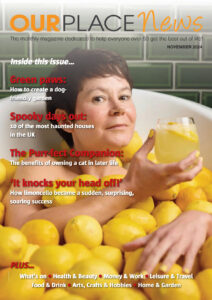Collaboration is key to creativity, but exceptional creativity often happens in solitude. Many great artistic masterpieces were done in isolation.
 You can benefit from interacting and brainstorming with others, but awesome creative work can be achieved by shutting out the outside world, whilst you insanely focus on your craft. Picasso said “Without great solitude no serious work is possible.”
You can benefit from interacting and brainstorming with others, but awesome creative work can be achieved by shutting out the outside world, whilst you insanely focus on your craft. Picasso said “Without great solitude no serious work is possible.”
Research by Dr. Mihaly Csikszentmihalyi author of Flow found that exceptional creators are more likely to be introverted.
According to Ester Buchholz, a psychologist and psychoanalyst and the author of The Call of Solitude, solitude is an important - and normal – part of human existence. And it’s also essential for our best creative work.
The best creative minds are flexible, and spend quality time working alone, but they don’t ignore the value of other ideas.
In physics, Albert Einstein, Isaac Newton, and James Clerk Maxwell, three of the greatest creative contributors, worked almost entirely alone. They profited from other people’s ideas not in direct collaboration, but by reading research papers and books
For artist Louise Bourgeois, aloneness was the raw material of art. She writes: “After the tremendous effort you put in here, solitude, even prolonged solitude, can only be of very great benefit. Your work may well be more arduous than it was in the studio, but it will also be more personal.”
You can lose yourself in your work, when you are consciously in the flow without distraction. Louise further says: “Solitude, a rest from responsibilities, and peace of mind, will do you more good than the atmosphere of the studio and the conversations which, generally speaking, are a waste of time.”
According to Susan Cain, author of Quiet: The Power of Introverts in a World That Can’t Stop Talking, brainstorming groups generate fewer ideas than the same number of solitary people working alone. Solitude can be beneficial to you when certain preconditions are met.
Kenneth Rubin, a developmental psychologist at the University of Maryland, calls them the “ifs.”
Kenneth says solitude can be productive only: if it is voluntary, if one can regulate one’s emotions “effectively,” if one can join a social group when desired, and if one can maintain positive relationships outside of it. When such conditions aren’t met, yes, solitude can be harmful.
History’s creative minds on solitude
Wolfgang Amadeus Mozart, a prolific and influential composer of the Classical era once said: “When I am, as it were, completely myself, entirely alone, and of good cheer – say, traveling in a carriage or walking after a good meal or during the night when I cannot sleep – it is on such occasions that my ideas flow best and most abundantly.”
Franz Kafka, one of the most influential writers of the 20th century says: “You need not leave your room. Remain sitting at your table and listen. You need not even listen, simply wait, just learn to become quiet, and still, and solitary. The world will freely offer itself to you to be unmasked. It has no choice; it will roll in ecstasy at your feet.”
Nikola Tesla, an inventor, and one of the most important contributors to the birth of commercial electricity says this about solitude: “The mind is sharper and keener in seclusion and uninterrupted solitude. Originality thrives in seclusion free of outside influences beating upon us to cripple the creative mind. Be alone – that is the secret of invention: be alone, that is when ideas are born.”
Solitude happens by choice
Solitude needs to be scheduled. Intentional. If you don’t set aside time for it, it will never happen. Rollo May once said “In order to be open to creativity, one must have the capacity for constructive use of solitude. One must overcome the fear of being alone.”
You can get your best work done when you make time for solitude. Schedule time your alone moment to do meaningful work. To take advantage of silence to improve your creative work, you could get in the office an hour earlier, just so you could get some quiet work done before the office starts buzzing.
If you can’t do it early, get your solitude by getting away from the office or your home. By all means, make some time for it to leverage the many benefits of silence. If you’re a night owl, you can find your quiet and solitude time at night and get creative work done.
If you are distracted by too many things, it pays to disconnect. Remove distractions. Turn off notifications. Or better still, turn off your phone or mobile devices and leverage silence to think or create. In other words, block out the external world and retreat inwards. Focusing on just one thing-without allowing distractions to intrude can become your own form of sacred solitude. Choosing to be alone in a somewhat disciplined manner can give you the time and space necessary to focus on your most important work.
(Article source: Medium)

